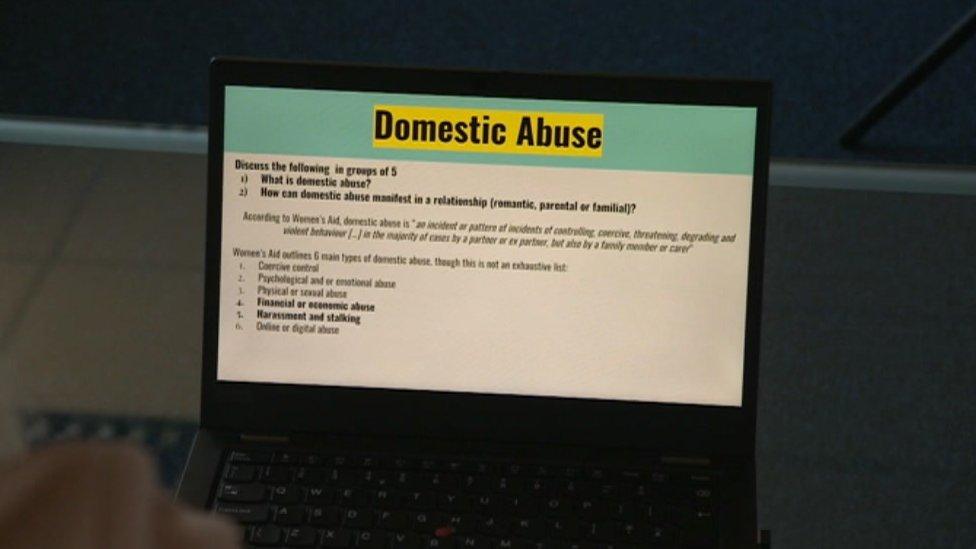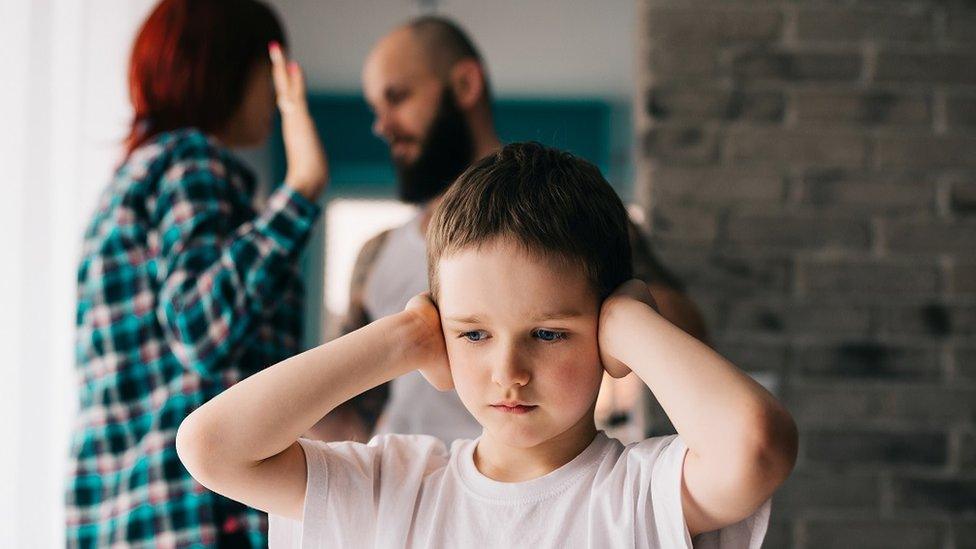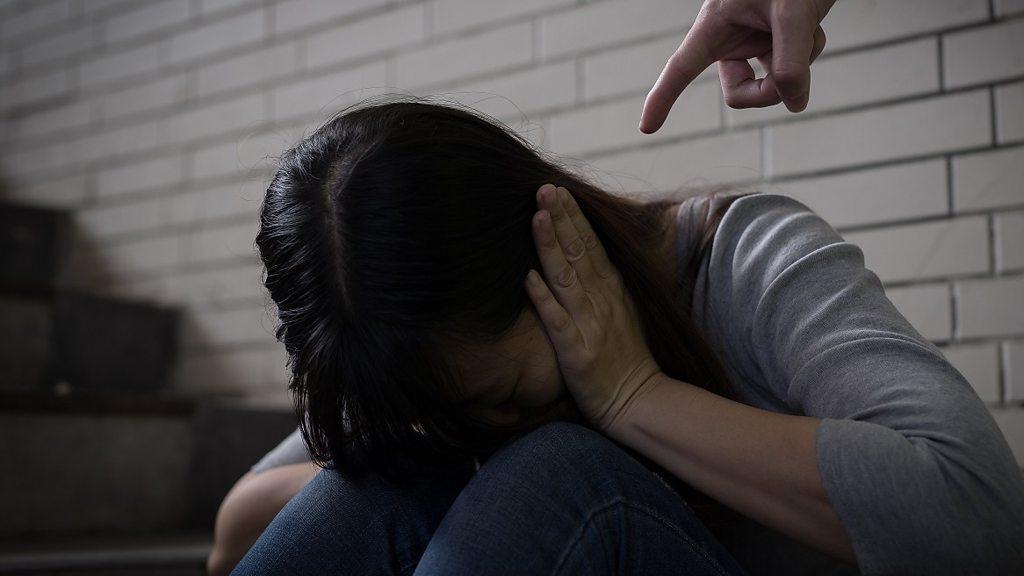Petition calls for mandatory domestic abuse lessons in college
- Published

Faustine Petron told the BBC lessons as a teenager might have helped her avoid an abusive relationship
A petition calling for lessons about domestic violence to be made mandatory for sixth form and college students has gained more than 50,000 signatures.
It was started by a group of friends in Oxfordshire, led by a woman who found herself in an abusive relationship as a teenager.
They said the lessons would help young people spot the warning signs earlier.
The Department for Education said colleges should be "alert" to issues associated with domestic abuse.

The campaigners have already prepared lesson plans they want colleges to use
University student Faustine Petron said being in an abusive relationship for three years made her want to start the petition.
"If I had been provided with the adequate education surrounding the early warning signs of domestic violence, I could have potentially avoided what I suffered," she said.
"The first year [of the relationship] was relatively normal but there was quite a lot of checking up on me, calling me a lot, wanting to see where I am, what I'm doing.
"I thought that was kind of loving and caring - but it's actually a sign of coercive control."
Classes teaching pupils about healthy relationships are already compulsory in secondary schools but Ms Petron and her friends believe more should be done to help post-16 students.

Campaigner Darius Smith said lessons about relationships should be taught to children "multiple times" as they grow older
Darius Smith, who is also involved in the campaign, said: "When you're learning about domestic violence, learning about healthy relationships, you should not just learn that once.
"You should learn that multiple times, and as you get older and you're more likely to be getting into relationships... you should be learning it more."
The group has already put together several lesson plans they hope to provide to interested colleges in September.
A spokesperson for the Department for Education said: "Domestic violence is a horrific crime. To help children and young people learn about healthy relationships early on we have made Relationship, Sex, and Health Education (RSHE) lessons in schools compulsory.
"Schools and post-16 providers should also be alert to issues such as everyday sexism, misogyny, and gender stereotypes and take positive action to build a culture where these are not tolerated, and any occurrences are identified and tackled."

Follow BBC South on Facebook, external, Twitter, external, or Instagram, external. Send your story ideas to south.newsonline@bbc.co.uk, external.
Related topics
- Published25 July 2022

- Published15 July 2022

- Published27 May 2020

- Published22 February 2022
